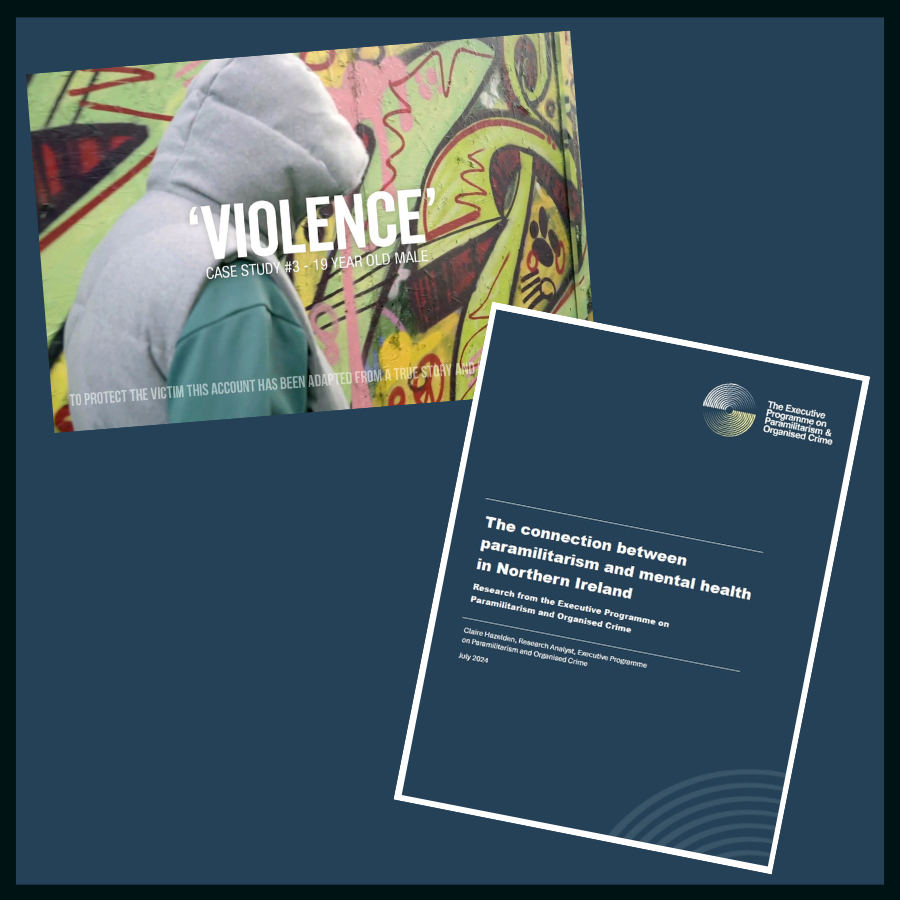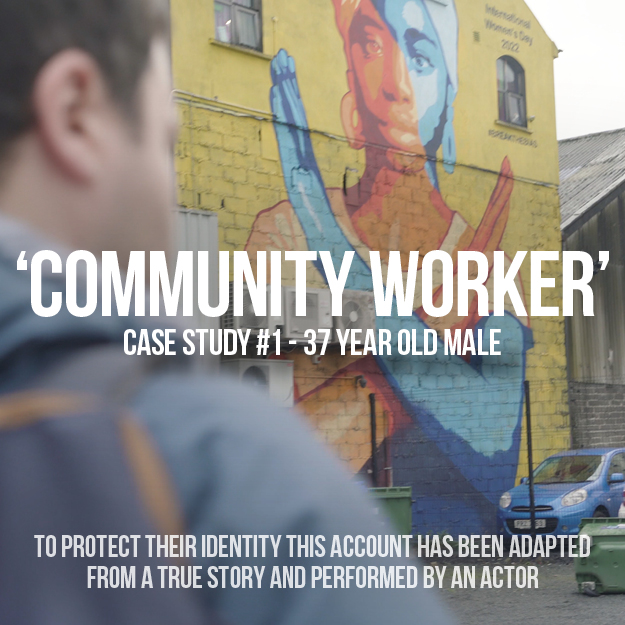A paper by the Northern Ireland Executive’s Programme on Paramilitarism and Organised Crime (EPPOC) confirms the disturbing relationship between paramilitarism and poor mental health in Northern Ireland.
Whilst it has been internationally recognised that violence affects wellbeing, this paper is specific to NI and sets out the extent to which paramilitary harm negatively impacts mental health.
The paper, titled, ‘The connection between paramilitarism and mental health in Northern Ireland’ is informed by research funded by the Programme, and data and evidence drawn from the Programme’s wide-ranging interventions that support those affected by, or vulnerable to, paramilitary harm.
For example, within the Programme’s Aspire Project, an award-winning initiative helping to build the coping mechanisms and resilience of boys and men on the edge of the justice system, 94% of the participants had experienced paramilitary threat/intimidation and violence (beginning at age 13 on average); and 94% of them also showed evidence of mental health issues, with 50% having an actual mental health diagnosis.
This issue is prevalent amongst women too – evaluation of the ‘Developing Women in the Community Project’ has shown that exposure to violence is associated with increased mental health concerns, with nearly 90% of participants reporting having a known mental health issue.
In conjunction with the launch of the research paper, the Programme is also releasing a short case-study film, titled ‘Violence’, in which a young man describes what it is like to live in a paramilitary-controlled community. He speaks of the fear, intimidation and violence inflicted by paramilitaries and organised crime groups.
The Executive’s lead Minister for the Programme, Naomi Long, said: “The paper, ‘The connection between paramilitarism and mental health in Northern Ireland’, highlights the complex relationship between paramilitarism and mental health, and the need for wider discussion and understanding of this connection.
“The negative impact on mental health is one of the many hidden harms that comes from paramilitary control of communities. The paper notes the alarming rates of trauma, anxiety, and depression; and the especially harmful impact on young people and women.
“This paper helps to cast light on the clear link between living in the shadow of paramilitarism and long-term mental health problems. The paper highlights the need for responses that take account of this trauma. The cross-Executive Programme to tackle paramilitarism is an example of an initiative that is trauma-informed.”
EPPOC Programme Director, Adele Brown, said: “Exposure to violence – whether directly or as a witness – has severely detrimental effects that can last a lifetime without proper supports. Adopting a trauma-informed approach is key to addressing the persistent impact of paramilitarism on vulnerable people in NI.
“Many of the projects funded by the Executive’s Programme have been able to evidence improved mental health outcomes through counselling, mentorship, resilience training and community connection. However, trauma is pervasive and intergenerational in Northern Ireland and the evidence suggests that services across the system need to take better account of this when developing policy and delivering interventions.
“We hope this paper encourages those who provide a service to the public, from Government Departments to other agencies and delivery partners, to prioritise a trauma informed approach – especially for those living day-to-day with the realities of paramilitary control.”
Click here to read the report


